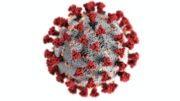Laura Reasor
Associate Family and Consumer Science Agent, Pulaski/Giles
There are many associations between substance abuse and poor health status. Each substance has its own set of specific side effects on health, but many of them have comparable influences on the body’s ability to get necessary nutrients in recovery. Some of the most common symptoms include loss of appetite, poor food choices, hypoglycemia (low blood sugar), organ damage, and gastrointestinal disorders.
Alcohol prevents many nutrients from being fully absorbed in the body. Alcohol causes harm to two critical digestive organs: the pancreas and liver. The enzymes that are necessary for digesting fats, proteins, and carbohydrates are produced by the pancreas. It also produces hormones that assist in balancing blood sugar. The liver breaks down toxins, including alcohol. If excess alcohol is consumed, the liver will not be able to break it down correctly and the alcohol will continue to circulate in the blood, causing more damage to the rest of the digestive system. The abuse of alcohol is known to cause severe deficiencies in folic acid, vitamin B6 and thiamin, which can result in anemia.
Marijuana is known to increase appetite in its users. Although this may be helpful to some individuals who are suffering with chronic diseases, it can be dangerous. This increase in hunger is often simply focused on quantity, with less attention on nutrition quality. Many food choices related to this substance include ones that contain significant amounts of saturated fat, sugar, and salt. A long-term diet of these foods can increase blood pressure and cholesterol, leading to heart disease, heart failure, and possibly diabetes.
Every individual may experience different side effects to different substances. It is important to follow a healthy eating pattern and exercise daily to aid in proper digestion of nutrients and support immunity.






